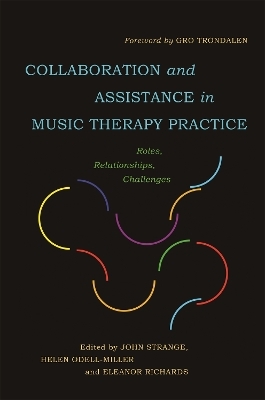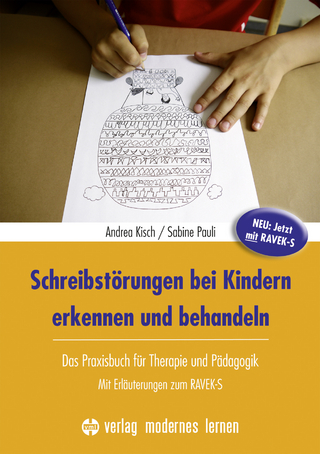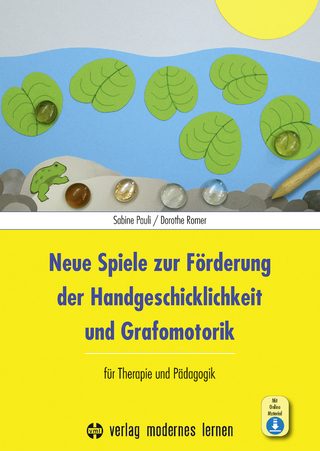
Collaboration and Assistance in Music Therapy Practice
Jessica Kingsley Publishers (Verlag)
978-1-84905-702-8 (ISBN)
Relating the innovative ways in which assistants and collaborators can become an integral part of a course of music therapy, this book explores how the involvement of a diverse range of individuals, such as family members, learning support assistants, caregivers and medical staff, can contribute to successful sessions. Illustrated by clinical examples, the book will help music therapists and students to make the most of opportunities to collaborate with individuals other than the client who may be present during therapy sessions. The book also takes into account the challenges that can arise in music therapy collaboration, and explores the relationships that can develop between music therapists, clients and collaborators.
John Strange chaired the UK Association of Professional Music Therapists from 1995 to 1998, also representing Britain on the European Music Therapy Committee (now Confederation). From 2002 to 2004 he was external assessor of improvisation on the Masters in Music Therapy programme at Aalborg University, Denmark. Since 1995, John has provided expert evidence on music therapy in almost thirty High Court cases of medical negligence. He has contributed chapters to two previous Jessica Kingsley publications and book reviews to the British Journal of Music Therapy. John is also a prolific composer, mainly of church music. Helen Odell-Miller OBE is a full time Professor of Music Therapy at Anglia Ruskin University, Cambridge and worked previously for many years as a therapist researcher and manager specialising in adult mental health in the NHS. She has published and lectured internationally and led research projects looking at clinical outcomes in dementia, and arts therapies in the adult mental health field. She is a board member of the International Centre for Research in the Arts Therapies, the Council for Allied Health Professions Research, and The Music Therapy Charity. She sings in Cambridge Voices, and is also a violinist and pianist. Eleanor Richards is a Senior Lecturer in Music Therapy at Anglia Ruskin University, Cambridge. Until 2013 she was a senior music therapist in the Cambridgeshire and Peterborough NHS Foundation Trust. She has a particular interest in group work, and is a team member at the Group Therapy Centre, Cambridge. She is also a psychotherapist and supervisor in private practice. She has published widely and contributed to national and international conferences. She is a member of the editorial board of the British Journal of Music Therapy.
Introduction. A Well-Trodden Territory in Need of a Map. John Strange, freelance music therapist, London, Helen Odell-Miller, Anglia Ruskin University, Cambridge, and Eleanor Richards, Anglia Ruskin University, Cambridge. 1. Assistants as Interaction Partners. John Strange. 2. Music Therapists' Experiences of Working with Staff in Sessions. Hannah Munro, Nordoff Robbins Scotland. 3. Student Perspectives on Working with Assistants on Placement During Vocational Music Therapy Training. Catherine Warner, University of the West of England. 4. Involving Family Members who are Primary Carers in Music Therapy Sessions with Children with Special Needs. Pornpan Kaenampornpan, Khon Kaen University, Thailand. 5. Exploring the Significance of the Role of Assistants in Music Therapy Groups in Adult and Older People's Mental Health Settings. Helen Odell-Miller. 6. 'Let Them Bring Their Own Song': A Qualitative Study of Developing Relationships Between Care Staff and Nursing Home Residents with Dementia Through Music Therapy and Dance Movement Therapy Groups. Ruth Melhuish, NHS Music Therapist, Bradford on Avon. 7. Caregivers' Dual Role in Music Therapy to Manage Neuropsychiatric Symptoms of Dementia. Ming Hung Hsu, MHA Homes and Anglia Ruskin University, Cambridge. 8. Psychodynamic Group Music Therapy Facilitates Carers to Become Auxiliary Music Therapists: A Case-Study and Methodological Analysis. Anthi Agrotou, Arte Musical Academy, Nicosia, Cyprus. 9. Supporting the Unplanned Journey: Music Therapy as a Developmental Resource with People with Profound and Multiple Learning Disabilities and Their Carers and Staff. Tessa Watson, Roehampton University. 10. From Assistance to Co-Therapy: On the Role of the Co-Therapist in Nordoff-Robbins Music Therapy. Jörg Fachner, Anglia Ruskin University, Cambridge. 11. Music and Attuned Movement Therapy: How the Facilitator Mediates Between Client and Therapist. John Strange, Mary-Clare Fearn, music therapist in health and special education, Dorset and Rebecca O'Connor, National Rehabilitation Hospital, Dublin. 12. Music and Movement: Integrated Music Therapy and Physiotherapy for People with Severe Physical Disabilities at Risk of Developing Fixed Deformities. John Strange and Lyn Weekes, physiotherapy manager and special education teacher (retired). 13. Improvised Music to Support Client-Assistant Interaction: The Perceptions of Music Therapists. John Strange. 14. Who Knows Me Best? Exploring the Collaborative Roles of Transient Practitioners and Constant Practitioners in Music Therapy. Sarah Hadley, Oxleas NHS Trust and Music as Therapy International. 15. An Inclusion Group for Primary School Pupils With and Without Profound Learning Disability. Motoko Hayata, formerly Soundscape, Newham Music Trust, and John Strange. 16. Building Musical Bridges in Paediatric Hospital Departments. Tone Leinebø, Oslo University Hospital and Trygve Aasgaard, Norwegian Academy of Music. 17. Someone Else in the Room: Welcome or Unwelcome? An Attachment Perspective. Eleanor Richards. 18. Valuing Human Resources. Training, Service Development, Research - The Way Forward. John Strange, Helen Odell-Miller and Eleanor Richards.
| Erscheint lt. Verlag | 21.12.2016 |
|---|---|
| Co-Autor | Catherine Warner, Anthi Agrotou |
| Zusatzinfo | 31 b&w figures |
| Verlagsort | London |
| Sprache | englisch |
| Maße | 160 x 228 mm |
| Gewicht | 467 g |
| Themenwelt | Kunst / Musik / Theater ► Musik |
| Medizin / Pharmazie ► Physiotherapie / Ergotherapie ► Ergotherapie | |
| ISBN-10 | 1-84905-702-8 / 1849057028 |
| ISBN-13 | 978-1-84905-702-8 / 9781849057028 |
| Zustand | Neuware |
| Informationen gemäß Produktsicherheitsverordnung (GPSR) | |
| Haben Sie eine Frage zum Produkt? |
aus dem Bereich


